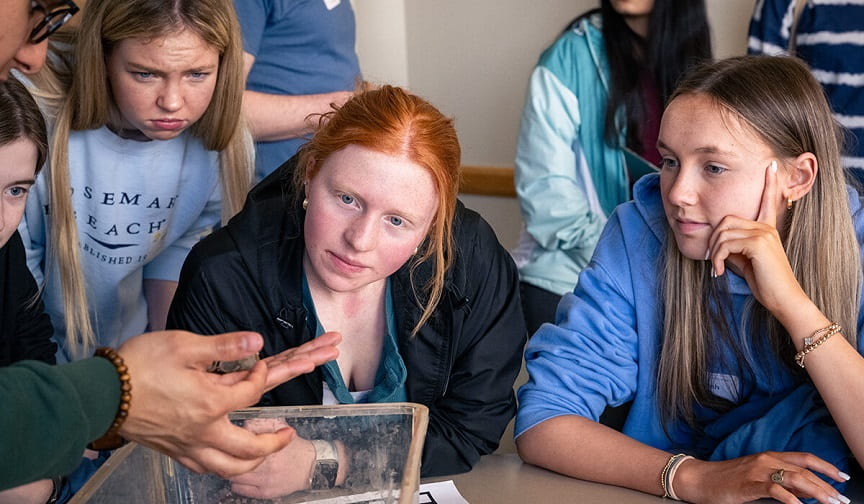More than 60 high school students representing 32 schools conducted experiments, explored careers in neuroscience and tested their knowledge of the human brain and the nervous system at the 14th annual St. Louis Area Brain Bee March 2 at Washington University in St. Louis.
“Neuroscience isn’t part of the standard high school curriculum, but every year we meet students who are interested in neuroscience because it synthesizes their interest in biology, chemistry, physics and math and is connected to so many topics they care about, from mental health to creativity,” said Brain Bee organizer Erik Herzog, PhD, the Viktor Hamburger Distinguished Professor in Arts & Sciences.
Diep Tran, a senior at Lindbergh High School, won this year’s competition and will compete in the USA Brain Bee Championship April 19–21 at the University of Central Florida. She also has been awarded a summer research fellowship in a neuroscience lab at Washington University. Tran won after successfully identifying narcolepsy as the disorder caused by the loss of neurons that express orexin. She prepared for this year’s competition by attending “Brain Blast Sessions,” where WashU students demonstrated various symptoms and challenged high schoolers to identify how to both diagnose and treat various disorders.
“I’m especially interested in the idea of consciousness and where it comes from,” said Tran, who plans to study biochemistry in college. “Neuroscience is really about what makes us human.”
Herzog said that many past Brain Bee participants are now studying neuroscience, some at Washington University. Brain Bee organizer and junior Sriharsha Gonuguntla won the 2020 St. Louis Brain Bee, while Shriya Koneru, also an organizer and junior, placed in the 2018 competition. Fellow organizer Arjun Nair and other volunteers from Synapse, the university’s neuroscience student group, also competed in Brain Bees in their respective hometowns.
